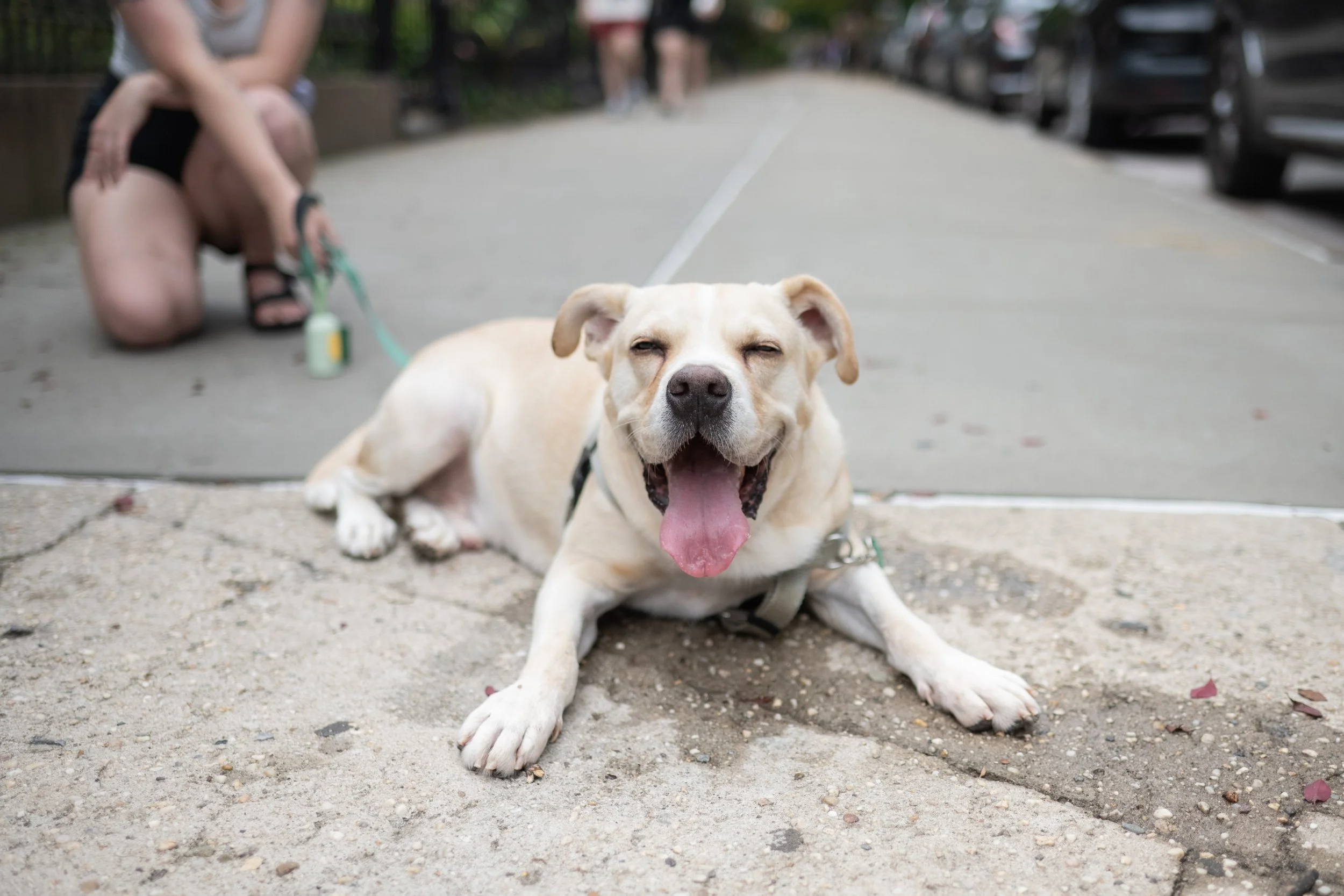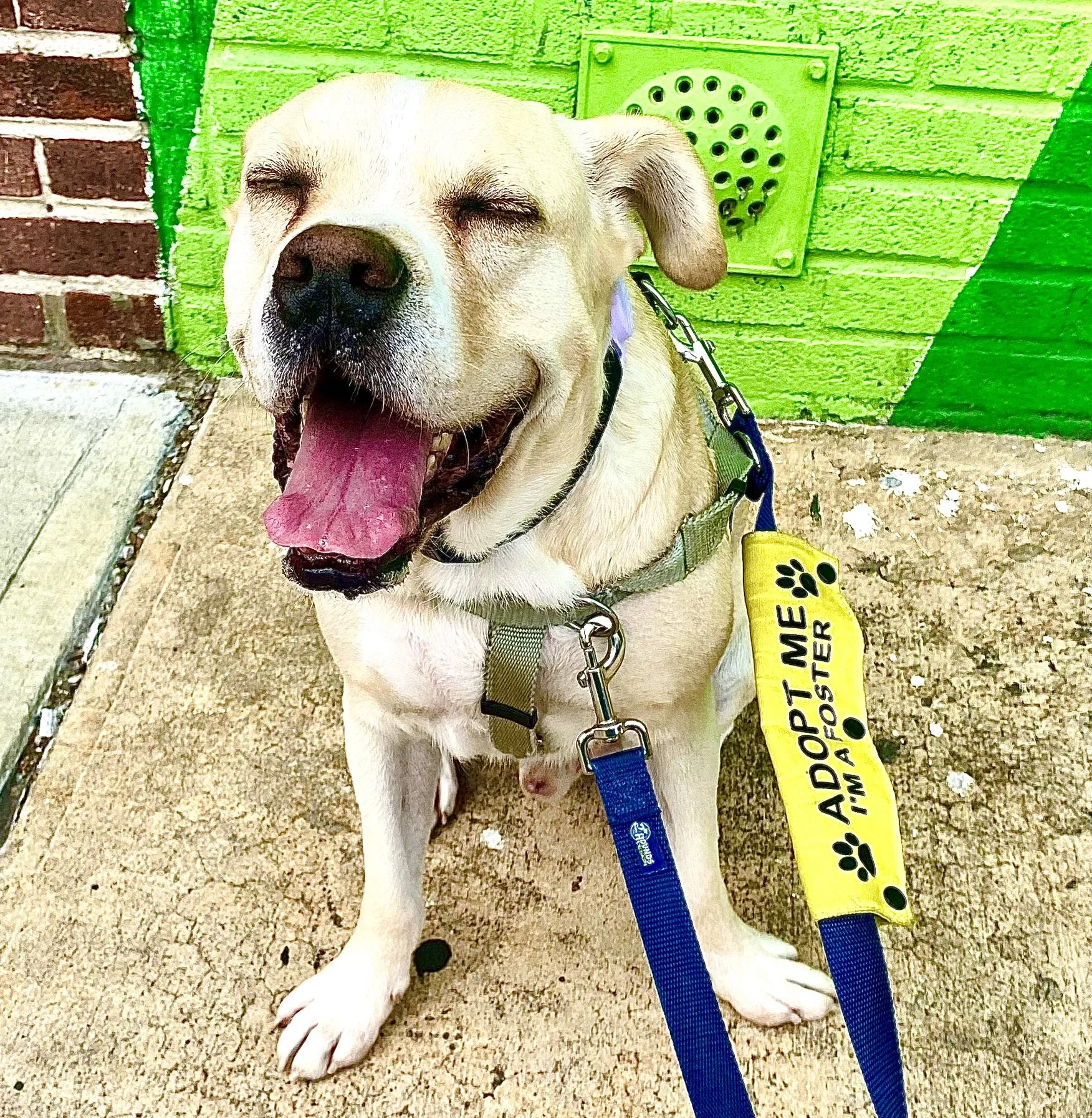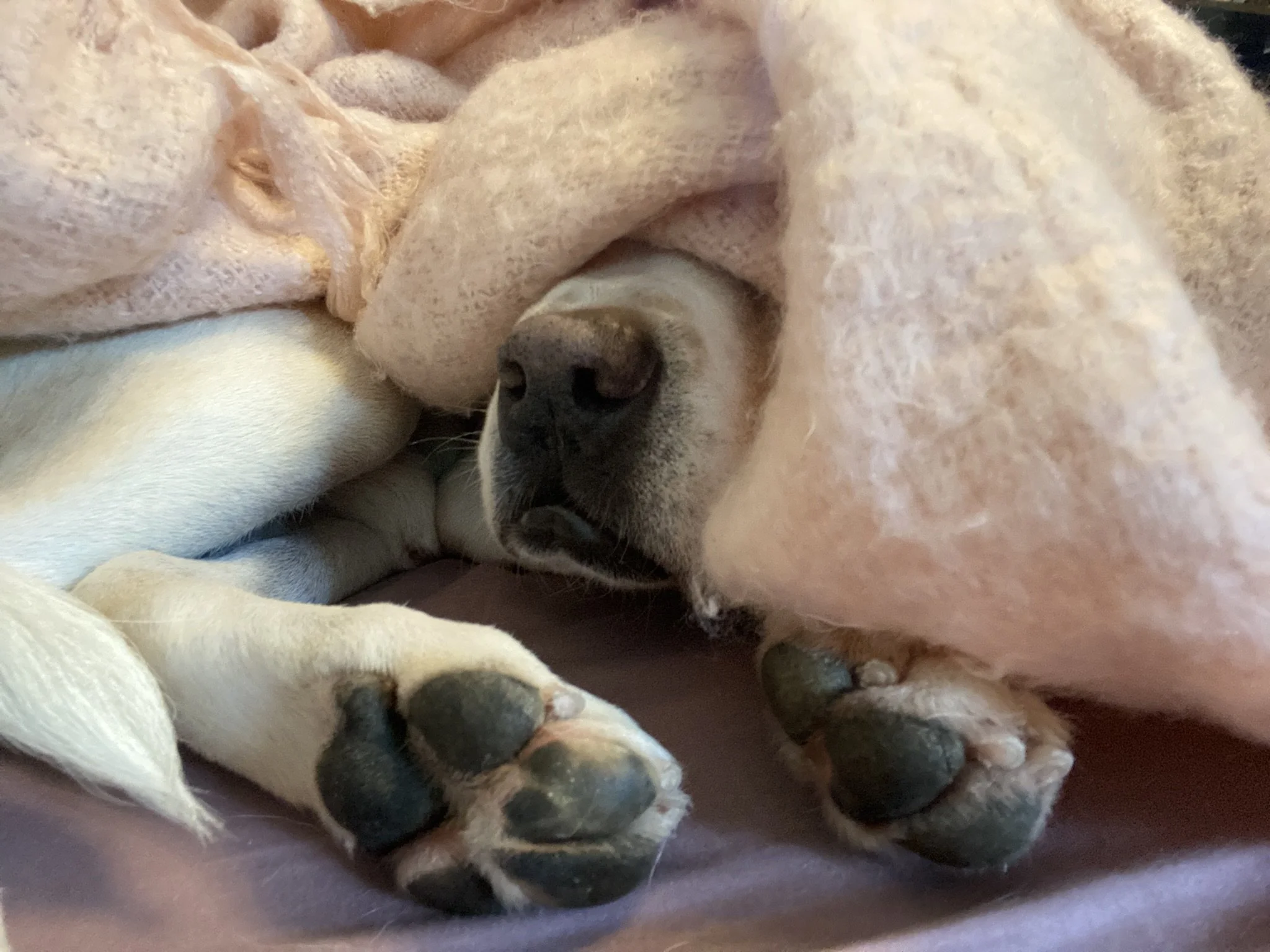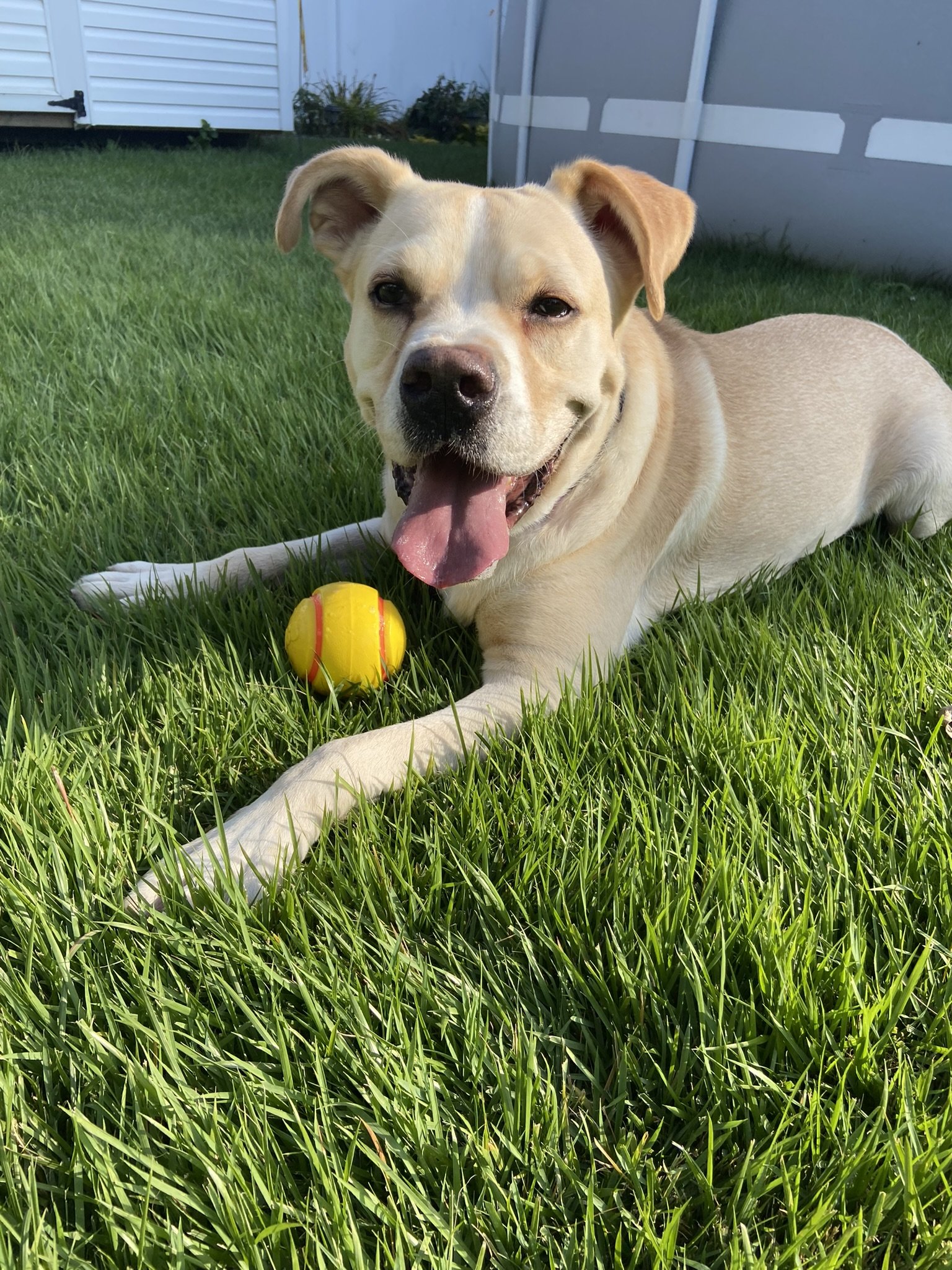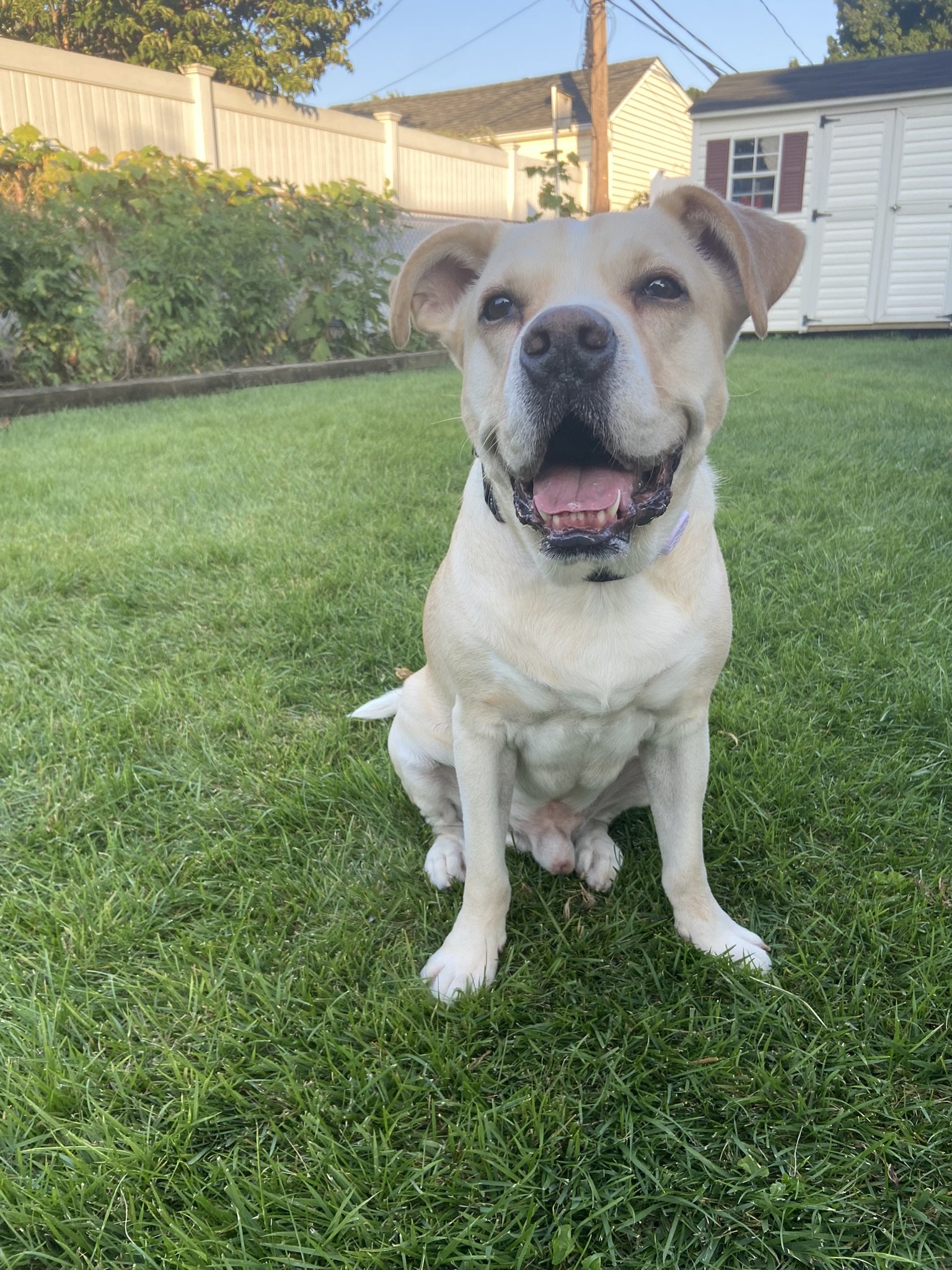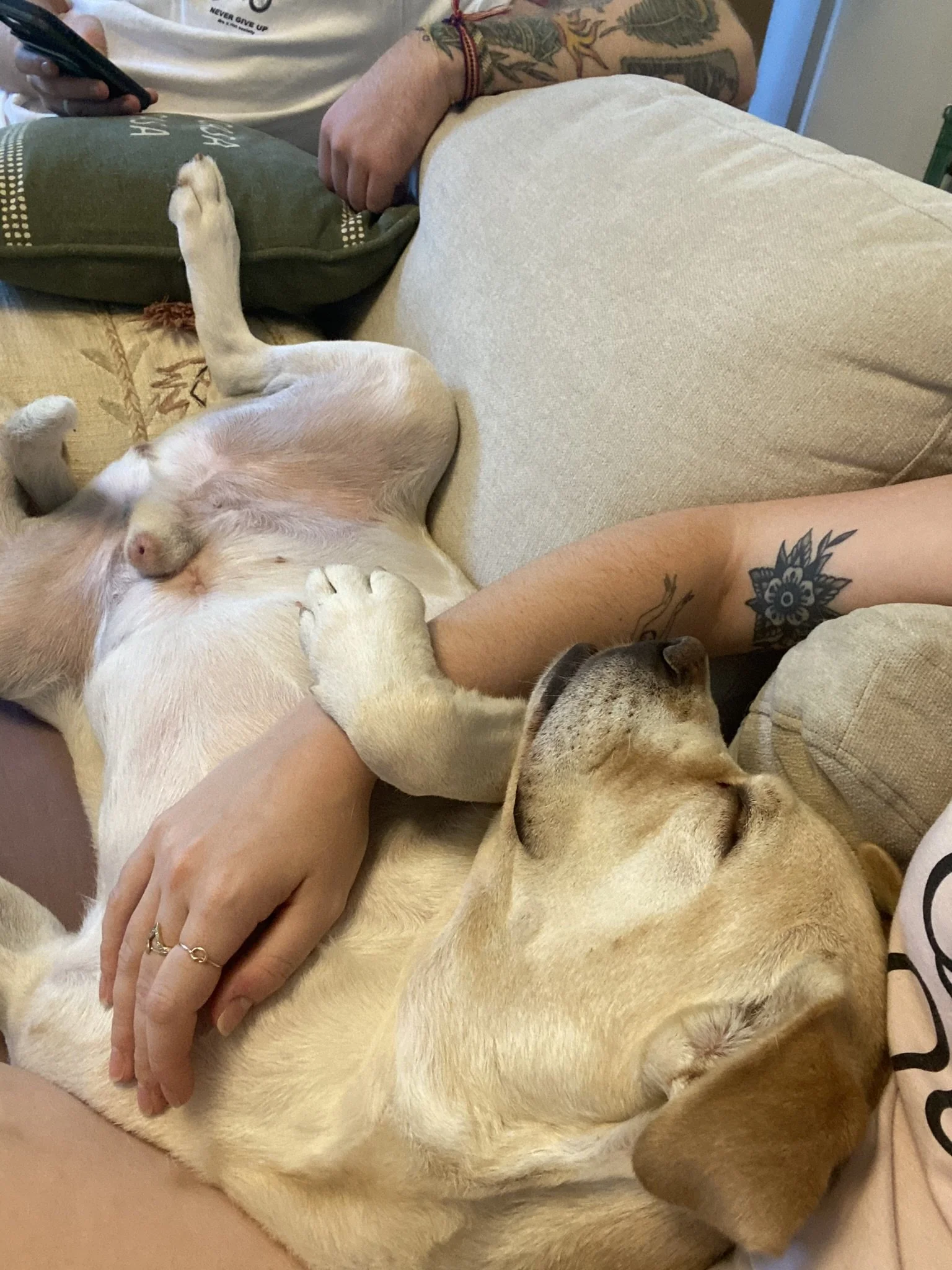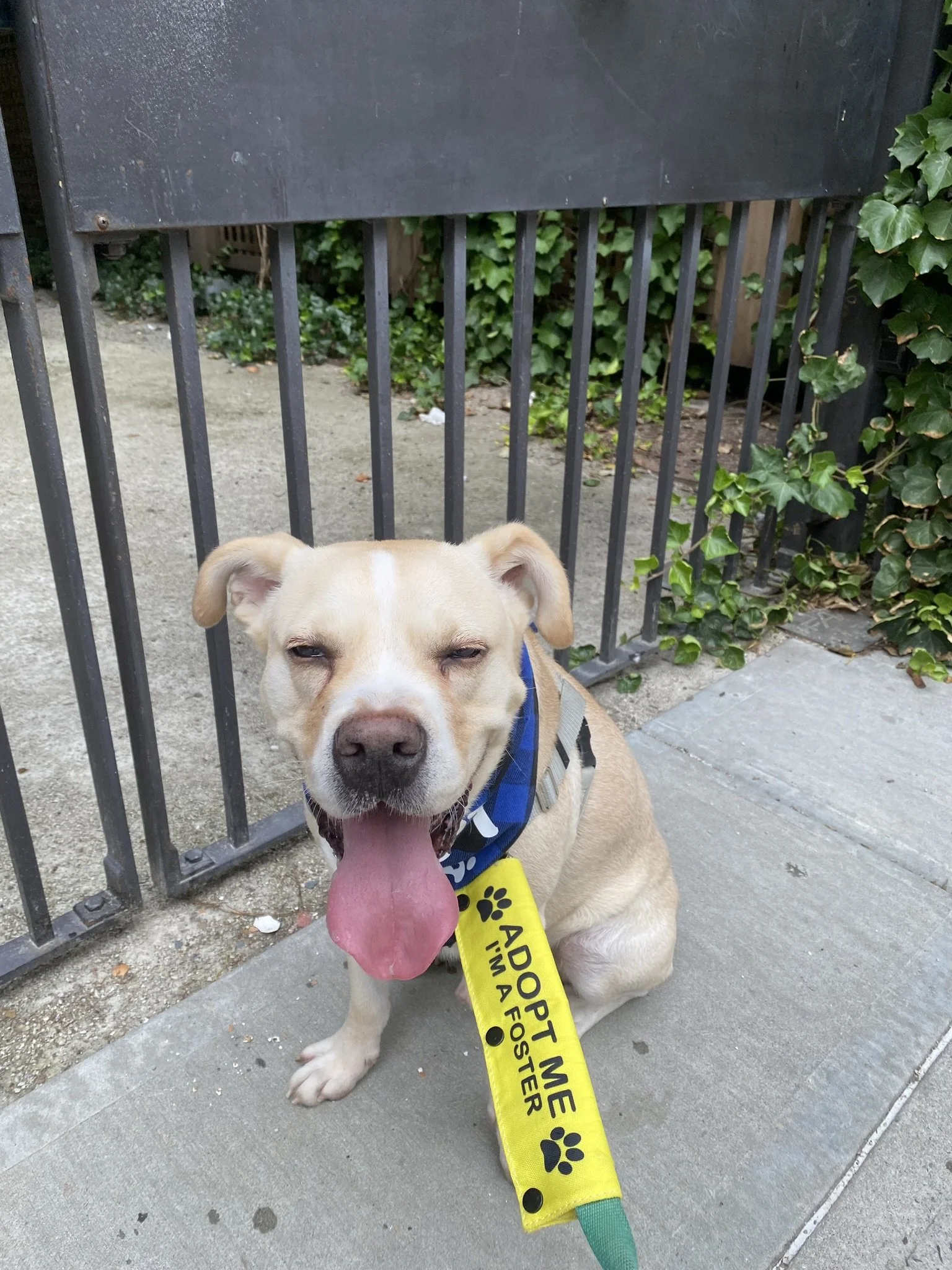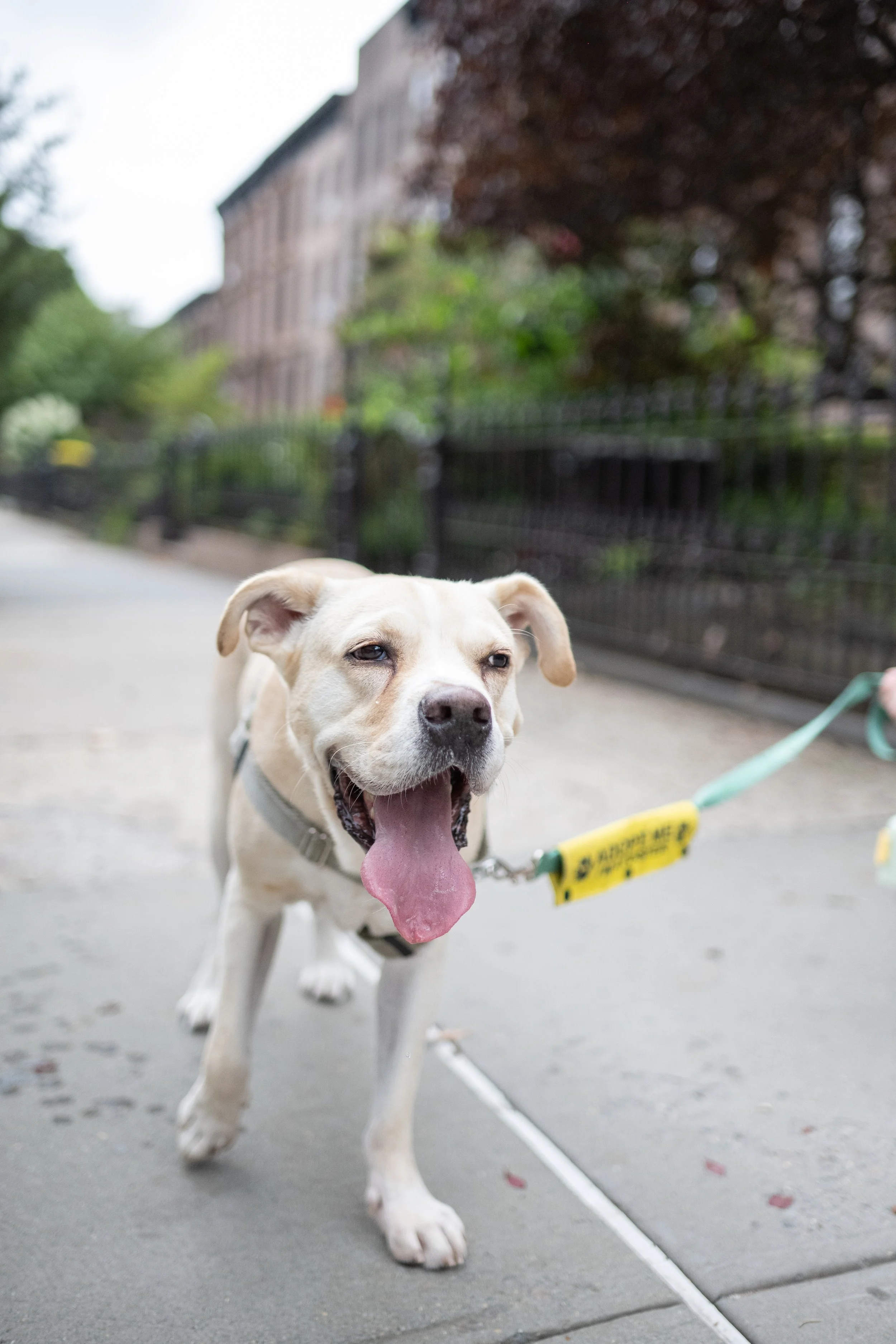Casper’s Story
The Before…
Casper was surrendered to the Animal Care Centers (ACC) in January 2024. By the time he came to us, he had already spent over 200 days in their care. Before entering the shelter, he’d been with two different fosters. The first, in New Jersey, absolutely adored him but didn’t have the time to fully potty train. The second, an older woman in Manhattan, found she couldn’t manage him on leash.
We don’t know much about Casper’s life before he was surrendered, but it’s clear he had been loved for a long time. He was six years old when he arrived at ACC. While at the shelter, he was neutered and recovered from a bout of kennel cough before being placed in foster care.
Casper came to us crate-trained, but not potty trained. He knew sit, stay, and when to go into his crate, but not much else. Casper was very reactive to other dogs on leash - more on that later. We picked Casper up on May 30th, 2024.
The First Days
Casper was our very first foster dog - and the inspiration behind Brooklyn Foster Club! We had boarded over 45 dogs before him, so we had a lot of experience with different behaviors and medical needs, but he was the first dog in our care who didn’t have a paw-rent. We knew Casper had been using potty pads at his last foster home, but we quickly realized he wasn’t potty trained really at all. We decided to nip that in the bud and go cold turkey - no potty pads, outside only! After two weeks, this smart boy was nearly fully trained. He would have an accident here or there, but who doesn’t? Casper took to us - and we took to him - very quickly. He was immediately cuddly and snuggly, loving just sitting on the couch with us while we worked or watched TV.
Just a month after Casper up, we both had week long trips planned and Casper was able to go to an amazing temporary foster home. It was there we learned Capser’s one true love - BLANKETS! This snuggly boy absolutely LOVED a blankie. He didn’t want a dog bed, he wanted a soft cozy blanket in his crate. He also loved to be snuggled under the blankets and would always nudge his way under a blanket on the couch with me. This was one of my most favorite things about him.
Casper’s Health
Early on, we noticed that Casper would occasionally vomit or regurgitate, especially after drinking water too quickly or getting too excited after meals. It turned out to be acid reflux, which we confirmed after taking him back to the Animal Care Centers (ACC) for imaging. The ACC team did an incredible job and thankfully, it wasn’t anything serious.
Casper was managed easily with heartburn medication, which he took like an absolute angel. I’d just pop the pill gently into his mouth, no fuss, no treats needed (though of course, he got plenty anyway). He did have a sensitive stomach overall, so we avoided table foods and started giving him Wild N Fresh treats Holisticanine slippery elm bark powder to keep his digestion on track and his poops looking good. Not an ad, just truly an amazing product that I tell every pet parent about.
Casper’s Reactivity
Casper’s leash reactivity was one of the hardest things we faced together. We’d boarded reactive dogs before, but they’d already had a solid foundation of training. With Casper, it was different. He hadn’t had that same kind of structure, and we were starting from scratch. We were definitely lost.
Early on, we didn’t have a strategy beyond avoidance. Living in Park Slope, Brooklyn, we encountered triggers often. We crossed the street constantly. We ducked behind parked cars. We turned around mid-walk if we saw a dog or a runner in the distance. He was sweet and snuggly at home, but on leash in the city, he’d pull and lunge the moment his nervous system hit overload. It felt unpredictable at first, but we slowly learned his triggers.
A kind potential adopter offered to pay for a session with a trainer, which we gratefully accepted. That session gave us our first glimpse of what was possible. Casper walked past dogs calmly, checked in with us, and didn’t react at all. It felt like a miracle. The trainer used a balanced training approach, including a prong collar. That tool, while effective in the session, is super controversial. Some people believe it's a necessary communication tool for certain dogs; others feel strongly that it causes harm or discomfort without generalizable results. I’m still not entirely sure where I stand on it. While we saw results with the trainer, and some generalization without the prong collar, it certianly wasn’t a magic solution. I just knew I wanted to help Casper, and I didn’t always know how.
Knowing more now, I think for the average person/dog team, the prong collar is a no. I think in the wrong hands it CAN cause discomfort and the results from the prong collar don’t generalize to behaviors without it. I think with a knowledgeable trainer it can help, but it’s not a magic solution and the times it should be used are few and far between. We ultimately stopped using it.
There were so many walks where I cried either out of frustration, guilt, or love for Casper. I wanted to be the best for him, and it often felt like I wasn’t enough. But Casper never gave up on me. And I never gave up on him. In quiet neighborhoods, with space and patience, we saw the real Casper—the goofy, loving, eager-to-please boy who just needed a little help navigating the world.
My Reactivity
What I didn’t expect was how much of Casper’s journey would become my own.
When people judged that boy - when they crossed the street with judgment in their eyes or muttered something under their breath after a lunge or a bark - it hit me hard. I’d get defensive, I’d throw insults back, I’d often cry as soon as we got home. I felt like they didn’t see the dog I knew: the one who greeted friends like long-lost family, who slept with his face tucked into my chest, who asked politely to get up on the couch and gave morning hugs like it was his job. They saw a “problem.” I saw my best boy trying his hardest. I even had a family cross the street and call me a “bad citizen” when I pulled a lunging reacting Casper aside to let them pass. People didn’t see how hard we were both working or the hours and hours of training that even got to the moment where I COULD pull him aside.
It took me a while to realize that I was reactive, too. My nervous system, like Casper’s, would go into overdrive the second things felt unpredictable. I’d tense up when I saw another dog coming. I’d overthink every route, every time of day, every sidewalk. I’d rehearse what I’d say if someone got mad at us and when they did, I’d think about what I should’ve said for days.
Through this, Casper taught me a ton. I started learning everything I could about dog behavior - body language, reactivity, threshold, trigger stacking. I listened to webinars, followed trainers and other reactive dog parents. And in the process, I found a whole community of people like me; reactive dog parents who were navigating the same big feelings, the same setbacks, the same small wins.
Casper taught me patience, resilience, and regulation. He reminded me that growth isn’t linear, and that understanding matters more than perfection. I’m still not a professional when it comes to reactive dog training. When Casper found his forever, he was still a reactive boy, but I’ve learned a lot. I have a huge soft spot now for dogs who see the world a little more intensely. Casper was my first true reactive foster, but I don’t think he’ll be my last. I’d love to take on another dog like him someday. A dog who just needs someone to understand them, advocate for them, see their strengths and wins, until the right person comes along.
The Almosts
Casper is a super cute soft baby boy, and I probably didn’t make his struggles clear enough when posting him to be honest. Casper met two potential adopters. The first noticed him on Instagram. She saw all the good in him that I saw - a calm, sweet, cuddly work from home buddy. We met up and I made sure we let Casper react when a dog passed. I wanted her to know exactly what she was getting into to avoid Casper potentially being returned to us or returned to the shelter. Funny story, the day Casper met his first potential adopter, we had just picked him up from his imaging appointment at ACC so he was still a little loopy! Ultimately, she decided it wasn’t a match.
A few months later, an older couple reached out to the ACC looking for a lab-mix. We had done DNA testing on Capser and he was primarily lab and boxer - with a whole bunch of other breeds mixed in. They fell for him right away., but once we went on a walk and they saw his leash reactivity firsthand, they realized it wasn’t going to be the right fit for their lifestyle either. Still, they were kind, thoughtful people who truly saw how special he was. In fact, they were the ones who generously gifted Casper a session with their trainer.
While disappointing, I never wanted Casper to bounce from home to home and ultimately be returned to me or the shelter, so I truly respected both potential adopters’ decisions. I knew he would find the most perfect family, it was just going to take a little time.
Casper’s Forever
10 months after we first brought Casper home, in February of 2025, a lovely couple came to our apartment to meet him. They had already fallen in love with him through pictures and videos but seeing him in person sealed the deal. Casper, in all his goofy, snuggly, people-friendly glory won them over immediately.
I was brutally honest about his leash reactivity. I wanted to lay it all out; what he struggled with, what environments would be hard for him, what support he’d need. I didn’t sugarcoat anything and still, they knew he was part of their family. They accepted him just as he was.
The perfect family really was worth the wait. Casper now has two dads who absolutely adore him and spoil him with all the love, comfort, and structure he needs. He also has what I can only assume is a record-breaking number of blankets.
What Casper Gave Me
Fostering Casper changed me for the better, and kid you not, crying as I write this. It was one of the hardest, most humbling, most rewarding experiences I’ve ever had. He taught me so much about patience, about behavior, about communication, and about myself. He challenged me in ways I didn’t expect and made me grow in ways I didn’t know I needed.
I started out just trying to help a shelter dog decompress. I didn’t expect to fall so deeply in love with him. I didn’t expect to cry so often. I didn’t expect to feel so protective, or so proud, or so unsure. But that’s what fostering really is: it’s showing up for a dog exactly as they are, even when it’s messy. and especially when it’s messy.
Casper will always have a piece of my heart. Not just because of how special he was, but because of how much he taught me and how much better he made me. I’ll never ever forget him, and I’ll always be grateful I got to be part of his story.

